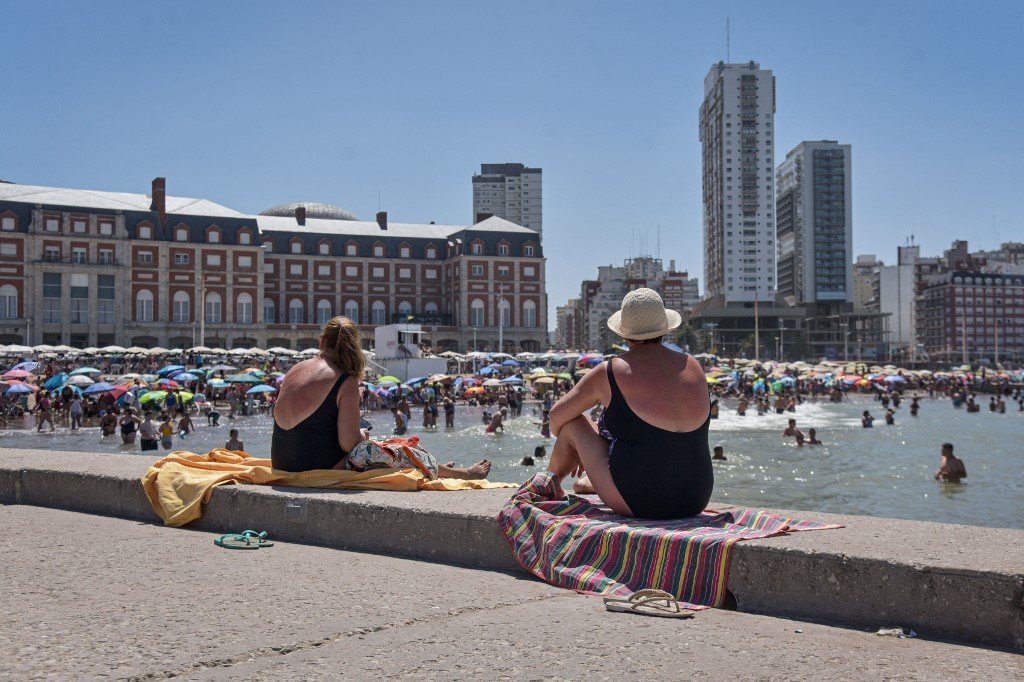Buenos Aires recorded the fourth-highest temperature in history on Tuesday. Even cities in Serra Gaúcha can reach 40 degrees
One heat wave Cause above-average temperatures at the beginning of the year in Southern Brazil, Next to Argentina e Uruguay. A mass of hot dry air lingering over the area caused this situation that could resonate with several problems. Buenos Aires, the capital of Argentina, recorded on Tuesday 11 a temperature of 41.1 degrees Celsius, the fourth highest temperature recorded in the city’s history. In Rio Grande do Sul, Porto Alegre It should approach 40 degrees Celsius in the coming days, and reach 44 degrees Celsius on Sunday, according to forecasts from the MetSul weather service. For example, maximum temperatures in the city of Uruguaiana must be between 42°C and 44°C until next Monday, the 17th, and even municipalities in Serra Gaúcha, the coldest area in the state, can reach and exceed the 40°C mark. The National Institute of Meteorology (EMNIT), an agency linked to Brazil’s Ministry of Agriculture, Livestock and Supply, has issued a warning of danger due to the heat wave in the state.
Temperatures are between 10 and 15 degrees Celsius higher than usual at this time of year, which is already very hot as is summer. High temperatures reach 50°C in some regions of Argentina, and range between 41°C and 43°C in Uruguay. Being a wave of dry air, it prolongs the drought, which has left 159 municipalities in the state of Rio Grande do Sul on alert since November and has damaged the region’s agriculture, especially in the production of cereals, fruits, vegetables and milk. The electrical system, which is already experiencing problems due to a lack of rain, can be overburdened by the increased use of air conditioning units and lead to supply crises and blackouts, such as what happened in Buenos Aires on Tuesday, when 11 neighborhoods and about 700,000 people were left without light. Finally, forest fires can start more easily, such as the fires that destroyed 37,000 hectares in the Paysando and Rio Negro regions, Uruguay, in the early days of 2022. With regard to the health of individuals, civil defense recommends in the affected places that residents avoid going out in the sun Without sunscreen, they keep themselves hydrated and try to stay in well-ventilated places.
11 ENE | # records Max temperature
Cordoba 42.5 °C
Punta Indio 41.2 °CKappa 41.1 °C
(**)
Pilar 41.0 °C
July 9 40.8 °C
Flowers 40.5°CEl Palomar 40.5 °C
San Fernando 40.2 °C
January and his annual record 1961-2021 (**) second highest T 1906-2021 pic.twitter.com/7fCwlGHD3Z – SMN Argentina (SMN_Argentina) January 12, 2022

“Music fanatic. Professional problem solver. Reader. Award-winning tv ninja.”


![[VÍDEO] Elton John’s final show in the UK has the crowd moving](https://www.tupi.fm/wp-content/uploads/2023/06/Elton-John-1-690x600.jpg)



More Stories
A South African YouTuber is bitten by a green mamba and dies after spending a month in a coma
A reptile expert dies after a snake bite
Maduro recalls his ambassador to Brazil in a move to disavow him and expand the crisis